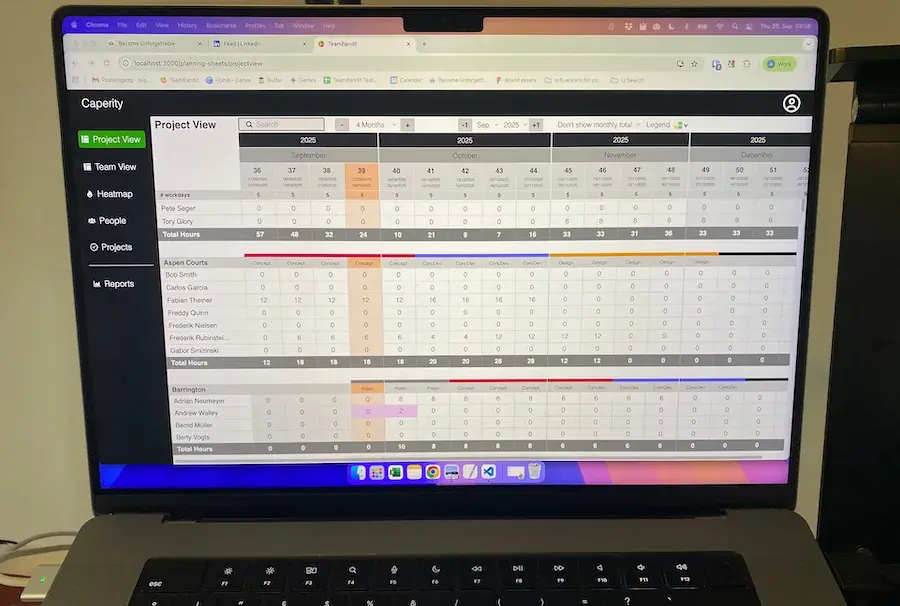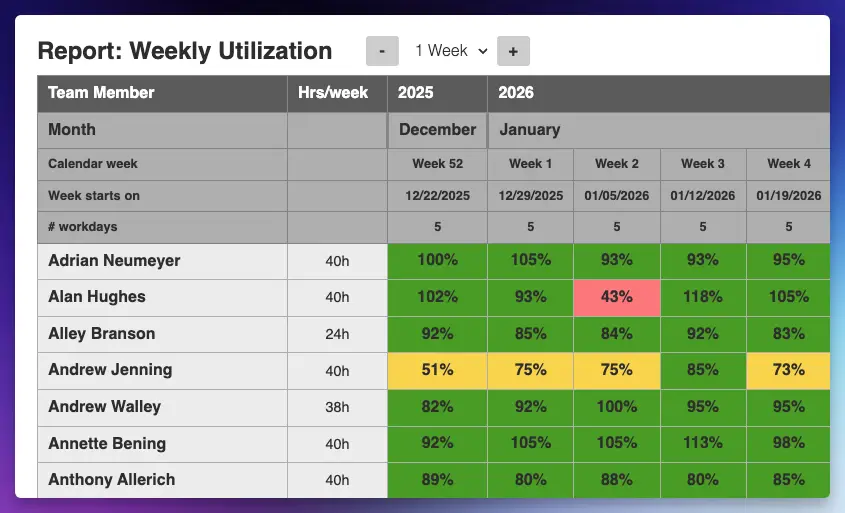What skills do you need to become a project manager? And what can a career path into project management look like?
This is what I’ve talked about with Echo A. Woolf, a project manager and entrepreneur from Arizona. Echo shared with me her story about how she became a project manager, and she has lots of great advice for you.
Meet Echo A. Woolf
Echo is an IT Project Manager and entrepreneur from Phoenix, Arizona. She holds a Bachelor’s degree in Business Administration with a focus in Project Management as well as an MBA with a focus on Project Management. Echo is also a PMP certified professional.

Early signs of a leader
If you had met Echo when she was a child, you’d probably have seen that one day she would become some sort of leader. Unlike other children who preferred to stay on the sidelines and join whatever activities their friends had arranged for them, Echo enjoyed taking the lead.
She would bring the kids of the neighborhood together and organize work for everybody: little fundraisers, car washing jobs or raking leaves so that the kids could brush up their pocket money. Echo enjoyed her leader role and her friends loved being guided by Echo.
Echo’s leadership talent was further confirmed when she took an assessment for students to help them choose a career path: the assessment brought up project management as a possible area for Echo.
Echo’s first job after university
After graduating from university, Echo was looking for a suitable job in the project management field.
There were a number of opportunities available that would have gotten her into project management directly. However, many of these companies weren’t a good fit in terms of culture. And this was a critical point for Echo. She wanted to get be apart of a great company, a great culture and find a role that would allow her to leverage her transferable skills.
Eventually, Echo started a job as an Operations Analyst at U-Haul, the famous equipment and storage rental company whose trucks you see driving all around the country. U-Haul not only had a large presence in her city (their headquarters were in Phoenix) but the company also had a great working culture.
Many people didn’t understand why Echo took the analyst role given that she had majored in project management. But Echo saw an opportunity that could easily be overlooked: Despite the role being in operational support, the analyst role had a clear underlying project management aspect. So, in her day job, Echo was managing smaller projects and timelines, coordinated internal business teams, prepared management reports and communicated with affiliates.
There’s an important lesson here for you if you are looking for a way to get into project management. Don’t get hung up on the job title. Many jobs actually involve PM work, even though they are no PM roles.
As Echo says:

It turned out that the skills she developed at U-Haul prepared her very well for a project manager job, which was her next move. And by showing hiring companies that she already had experience in managing projects or coordinating teams, she could speak to what they were looking for. These were the transferable skills which are so important for project management.
Examples of transferable skills:
- leading small initiatives or projects
- communication
- problem solving
- working with clients
- preparing reports
Maybe you already have many of the PM skills? Use Echo’s worksheet to find out!
Echo has a great assessment sheet that helps you find out whether you already have some of these transferable skills for project management. You can download it here:
Becoming an IT Implementation Project Manager
Echo enjoyed her role at U-Haul but she was still trying to become a full-time project manager by title. She looked at other teams inside U-Haul but couldn’t find any exciting opportunities that would be more project-focused.
After a few rounds of interviews, Echo joined B2Gnow as an IT Implementation Project Manager. This was her first real project manager role. It turned out to be very easy to get into the IT PM role. Why? Because Echo had been doing project management all along as a business manager and as an operations analyst. Even though she had not worked as an “official” project manager, Echo had the experience that B2Gnow was looking for. And through conversations with hiring managers it was very easy to get the job.
In her role as an IT Implementation Project Manager, Echo was responsible for complex software implementations for government agencies. During her first months, she was mainly shadowing experienced project managers and learned how they ran projects from end to end.
Eventually, Echo took over her first projects. This wasn’t easy because she had to deal with unfamiliar questions and had to be resourceful to solve project problems by herself. Understanding that she didn’t have to know all the answers and asking her team for help proved to be the right strategy to overcome obstacles and keep her projects on course.
Her role also involved a great deal of technical work, meaning she would actually do technical things on the system. It was a steep learning curve, and Echo worked hard to become familiar with the system. She read the user guides, sat in training workshops to really become competent in the technical sphere.
Becoming a Senior Implementation Manager at B2Gnow
After 3 years at B2Gnow, Echo was promoted to a senior level project manager position.
It was still the same working environment but the projects were more complex: the stakeholders were more demanding, the solutions more complex and the time pressure was even higher. Echo also began to mentor some of the junior project managers and helped them understand the ropes of project management — a responsibility she greatly enjoyed, being so passionate about project management.
Besides her job, Echo had been working on a side project for setting up her own business in the project management world. Eventually, she decided to leave her job and focus entirely on building up her own business.
Becoming an entrepreneur
Echo always had a passion for project management and she enjoyed helping others improve their skills and answer career-related questions.
She decided to turn her passion into a real business that would make money. This is when she co-founded Your PM Sidekick (http://yourpmsidekick.com), a business focused on helping small organizations and individuals build their PM skills, establish project management processes and prepare for the PMP.
![]()
One part of Echo’s work is helping professionals make the leap into project management. As you’ve probably experienced yourself, people have many questions when it comes to finding a path into project management:
- What are the skills you need to be a project manager?
- How can you promote yourself to be considered for interviews?
- And what does a project manager’s job actually look like?
These are some of the questions she helps people with through her blog, courses and other downloadable material.
The other side of her business is helping people succeed in the PMP exam. Studying for the PMP is a big endeavor and you easily get overwhelmed by the ton of material.
Echo says that it’s important to find your own learning style. Not everybody has the same way of preparing for the tough exam. Echo can help you find a strategy that works for you and that increases your chances of passing the exam!
I highly recommend you take a look at Echo’s website at Your PM Sidekick!
Senior Project Manager BluJay Solutions
While working on her own business, Echo was still thinking of her long term goal to get into a traditional project manager role. Traditional in the sense that she could focus on leadership and communication work without having to do technical stuff.
At some stage, her business required less attention because most of the processes had been automated. This felt like the right time to look for a project manager role with more responsibility. Echo admits she was also the missing element of a team that drew her towards a regular job, because starting your own business can be very lonely!
Being very skilled at communication with hiring managers, it didn’t take Echo long to find the job of her dreams. She joined BluJay Solutions, a software company, as a senior project manager. This time she didn’t have to get involved in the technical side of things anymore. Instead, Echo was able to focus entirely on leading people, building relationships and organizing work — the part she enjoys most about being a project manager.
The greater responsibility that comes with her new role also poses new challenges:
- Echo has to rely more on the expertise of her team and she has to make sure that the team has what they need to be successful.
- She is the point of escalation in case things get stuck or the customer is not satisfied.
- She has to take care of budget
- Sometimes questions or issues may pop up that she doesn’t have an answer on. This is where Echo has to leverage the knowledge of her team to find a solution together.
These challenges are typical when you move up the ladder into a more demanding project leader role. Remember it’s a learning process and just like Echo, you need to do the work and learn from your experiences every day. This is how you become a great project manager.
At the end of the interview, I asked Echo for advice on how you can find a great company to work for. Here’s what she recommends:
How to find a great place to work — Echo’s advice
When you are looking for a new job, specifically in the project management area, here are some factors to consider:
1. Choose a field you enjoy
Working in a field of work you are passionate about will help you become more successful. If it’s engaging, it will be more enjoyable, and won’t feel like ‘work’ — most of the time.
Echo’s interest was in the software realm, so she chose a company focusing on software. The industry didn’t matter.
2. Make sure the company is a good cultural fit
This is not so easy to accomplish, but with a bit of research you will at least get an idea of a company’s culture. Nowadays you can find reviews on sites like Glassdoor.
You can even get in touch with employees via LinkedIn and ask specific questions about things you want to know.
3. Make a list of things important to you
Many people looking for a job only consider the requirements of the hiring company, and they forget to put their own requirements on the table. This can lead to disappointment when people find out their new job doesn’t give them what they wanted.
Always remember that you have full control over your career, and if you want something, you can get it. Your first step should be to clarify what things matter to you for your job, and then address those points in the interview.
For Echo, an important requirement was that she could work remotely. So she emphasized this point during the interview and her employer was willing to give her that flexibility.
—
Echo was a great guest to talk to and she shared a lot of valuable tips and insights. Make sure to follow her blog at YourPMSidekick.com/blog. And remember you always have a friend in project management with Echo and me. If you have questions, we’re happy to help you!
Author
-
Hi, I’m Adrian, a Senior Project Manager and the Creator of Tactical Project Manager, where I teach a pragmatic approach to project management. Led large-scale IT and business projects for over 10 years. My goal is to enable you to lead any project with confidence.
View all posts


